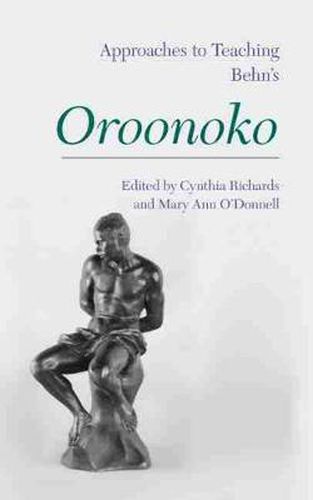Readings Newsletter
Become a Readings Member to make your shopping experience even easier.
Sign in or sign up for free!
You’re not far away from qualifying for FREE standard shipping within Australia
You’ve qualified for FREE standard shipping within Australia
The cart is loading…






Once merely a footnote in Restoration and eighteenth century studies and rarely taught, Oroonoko; or, The Royal Slave (1688), by Aphra Behn, is now essential reading for scholars and a classroom favourite. It appears in general surveys and in courses on early modern British writers, postcolonial literature, American literature, women’s literature, drama, the slave narrative, and autobiography.
Part 1 of this volume, Materials, provides not only resources for the teacher of Oroonoko but also a brief chronology of Behn’s life and work. In part 2, Approaches, essays offer a diversity of perspectives appropriate to a text that challenges student assumptions and contains not one story but many: Oroonoko as a romance, as a travel account, as a heroic tragedy, as a window to seventeenth-century representations of race, as a reflection of Tory-Whig conflict in the time of Charles II.
$9.00 standard shipping within Australia
FREE standard shipping within Australia for orders over $100.00
Express & International shipping calculated at checkout
Once merely a footnote in Restoration and eighteenth century studies and rarely taught, Oroonoko; or, The Royal Slave (1688), by Aphra Behn, is now essential reading for scholars and a classroom favourite. It appears in general surveys and in courses on early modern British writers, postcolonial literature, American literature, women’s literature, drama, the slave narrative, and autobiography.
Part 1 of this volume, Materials, provides not only resources for the teacher of Oroonoko but also a brief chronology of Behn’s life and work. In part 2, Approaches, essays offer a diversity of perspectives appropriate to a text that challenges student assumptions and contains not one story but many: Oroonoko as a romance, as a travel account, as a heroic tragedy, as a window to seventeenth-century representations of race, as a reflection of Tory-Whig conflict in the time of Charles II.